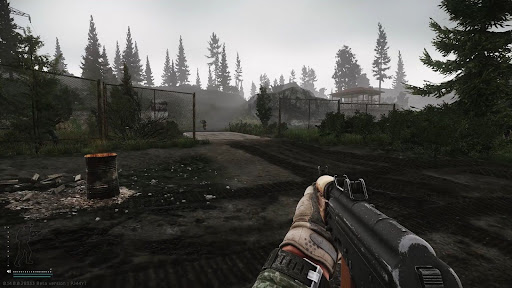Game hacks manipulate the code of a game to give players an unfair advantage. They can modify in-game mechanics, bypass security systems, or automate actions that would otherwise require skill and effort. These hacks often come in the form of third-party software that injects new code into a game or exploits weaknesses in its design.
Types of Game Hacks
There are several types of game hacks, each designed for different purposes:
- Aimbots – These hacks allow players to aim automatically, making every shot land perfectly on a target.
- Wallhacks – These give players the ability to see through walls, making it impossible for opponents to hide.
- ESP (Extra Sensory Perception) – A more advanced version of wallhacks, ESP highlights enemy locations, weapons, and other game elements.
- Speed Hacks – These let players move faster than intended, making them difficult to hit.
- God Mode – This makes players invincible, preventing them from taking damage.
- Resource Hacks – These allow players to gain unlimited in-game currency, ammo, or health.
How Game Hacks Bypass Security
Game developers implement anti-cheat systems to detect and prevent hacking. However, cheat providers find ways to bypass these measures. Some of the most common methods include:
- Code Injection – Injecting custom code into the game’s memory to modify its behavior.
- DLL Modifications – Altering game files to introduce new mechanics.
- External Scripts – Using third-party programs to send automated commands.
- Kernel-Level Exploits – Running cheats at a deep system level to evade detection by anti-cheat software.
Some cheat providers use techniques like encryption and obfuscation to hide their hacks from detection. StealthCore, for example, is a provider known for selling undetectable cheats that can evade most modern anti-cheat systems.
Why Game Hacks Are So Popular
Despite the risks of bans and penalties, game hacks remain widely used. There are several reasons why players turn to cheats.
Competitive Advantage
Many players use hacks to dominate online matches. Winning is addictive, and some users resort to hacks when they can’t compete fairly. Features like aimbots and ESP make it easy to outperform opponents.
Frustration with Game Difficulty
Some games are intentionally difficult, leading players to seek shortcuts. Whether it’s an unforgiving shooter or a grind-heavy RPG, cheats provide a way to skip the hard parts and enjoy the game without stress.
Financial Incentives
Cheating isn’t just about winning—it’s also a business. Some players use hacks to farm in-game items and sell them for real money. In competitive games, accounts with high rankings and rare skins are often sold at a premium. Cheat providers like StealthCore take advantage of this demand by offering paid hacks that keep users undetected for extended periods.
The Thrill of Breaking the Rules
For some, cheating is a form of entertainment. Bypassing a game’s security or outsmarting developers can feel like an accomplishment. These players enjoy pushing boundaries, regardless of the consequences.
The Battle Between Hackers and Developers
Game developers continuously update their anti-cheat systems, while cheat developers find new ways to bypass them. This cat-and-mouse game has been going on for years, and it’s unlikely to end anytime soon.
Common Anti-Cheat Systems
Developers use different strategies to detect and prevent hacking, including:
- Signature Detection – Identifying known cheat files and blocking them.
- Behavior Analysis – Detecting unusual player behavior, like instant headshots or abnormal movement patterns.
- Hardware Bans – Preventing repeated offenders from playing, even if they create new accounts.
- Machine Learning – Using AI to detect previously unknown cheats based on gameplay data.
Despite these measures, undetectable hacks continue to emerge. Providers like StealthCore constantly update their cheats to stay ahead of anti-cheat systems.
The Risks of Using Game Hacks
While hacks may seem appealing, they come with serious risks.
Account Bans
Most online games have strict policies against cheating. Developers can permanently ban accounts caught using hacks, leading to lost progress and purchases.
Malware and Scams
Not all cheat providers are legitimate. Some hacks contain hidden malware that can steal personal information, damage devices, or lock users out of their accounts.
Legal Consequences
In some cases, cheating in games can lead to legal action. Game developers have sued cheat providers and users for violating terms of service and harming the gaming experience.
Will Cheating Ever Stop?
As long as competitive gaming exists, hacks will remain a problem. Developers will continue improving their anti-cheat systems, but cheat providers like StealthCore will keep finding ways to evade detection. The battle between hackers and developers is ongoing, and neither side is willing to back down.
For players, the decision to cheat comes down to risk versus reward. Some are willing to take the risk for an advantage, while others prefer to play fair. Regardless of the choice, game hacking will remain a controversial yet persistent part of gaming culture.









